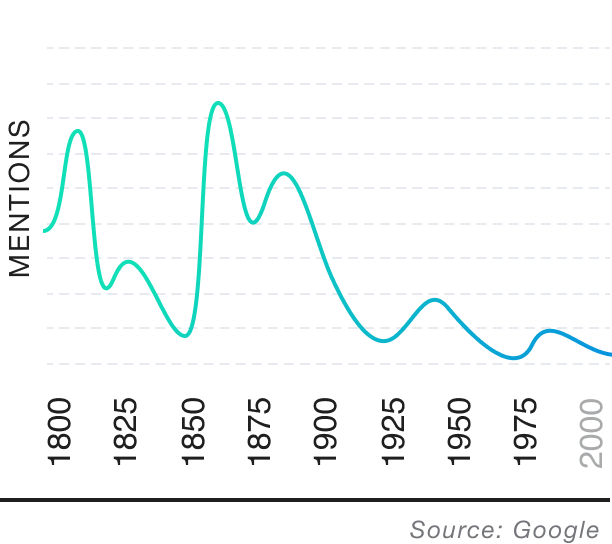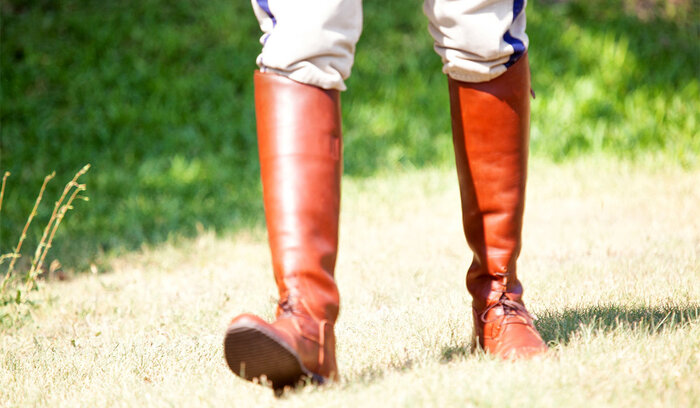[BUS-kən]
Part of speech: noun
Origin: Old French, 16th century
1.
(mainly historical) A calf-high or knee-high boot of cloth or leather.
2.
A thick-soled laced boot worn by an ancient Athenian tragic actor to gain height.
Examples of Buskin in a sentence
"Martha dressed in period costume down to her feet, on which she wore leather buskins."
"Wearing buskins onstage is generally seen as a nod to classical Greek tragedy."
Popularity Over Time


About Buskin
Though the etymology of “buskin” is debated, the term bears strong resemblance to the 15th and 16th century words “brouzequin” (French), “borsegui” (Catalan), and “borzacchino” (Italian), all of which describe boots of some kind. However, others believe “buskin” is actually a variation on “buckskin,” which describes a kind of leather out of which buskins might have been made. “Buckskin” itself dates back to the 15th century or earlier.
Did you Know?
Buskins are so closely associated with Greek tragedy—which includes such famous works as Sophocles’s “Oedipus Rex”—that “buskins” was a term used between the 16th and 19th centuries as a reference to theatrical tragedies. The expression “to put on the buskins” meant “to act in a tragedy,” or to behave in a tragic manner.
Comments
Post a Comment